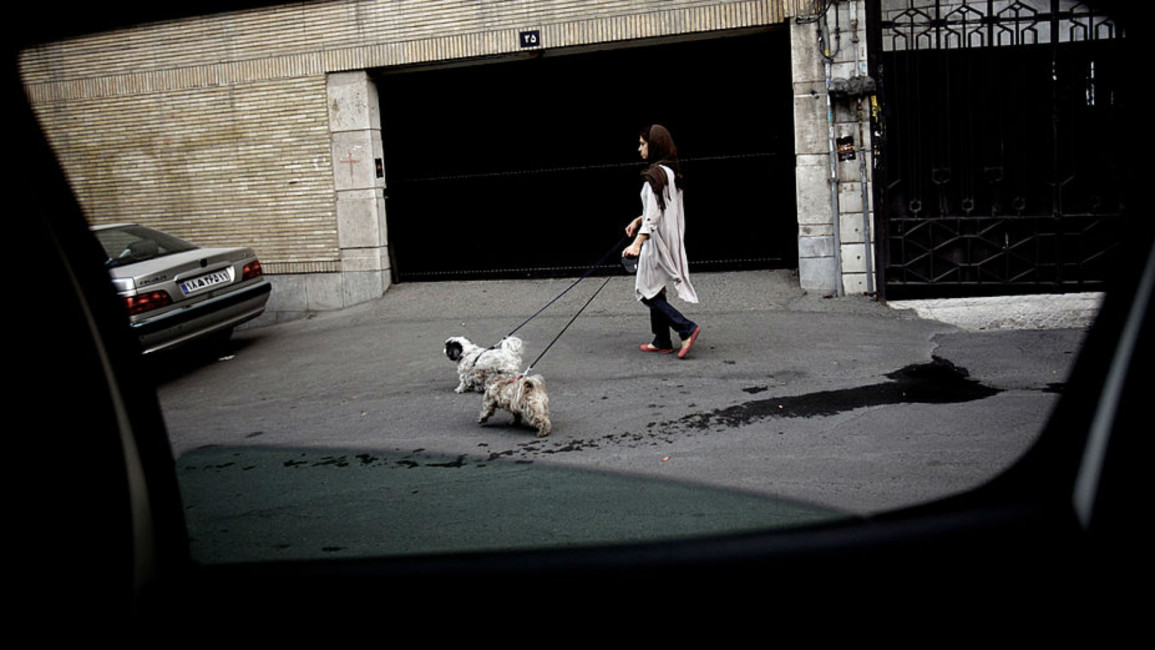
The dangers of destroying Iran's middle class through sanctions
Michael Pregent, an analyst for the Hudson Institute in the United States, recently told the Kurdish news outlet Rudaw that sanctions are having an effect on Tehran.
Asked if the Iran regime could survive another 20 months of the Trump administration, Pregent admitted he did not know. When asked if it could survive another six years with Trump in power Pregent emphatically said "No, especially if the maximum pressure campaign continues."
If this does happen, however, Iran's already struggling middle class will be completely pulverized and the chance of the country transitioning into anything less oppressive than the current theocratic government will be severely reduced.
This would bode ill for the future of Iran. For years the country has suffered from a chronic brain drain, with approximately 150,000 educated Iranians leaving their country each year, it's one one of the worst in the world.
The Trump administration, despite what John Bolton's dalliances with the cultist Iranian MEK opposition group might have suggested, has clarified that it is not actually pursuing regime change in Iran. Rather, it appears to want Tehran to make more concessions, on its nuclear programme and other issues, before returning to the negotiating table.
 |
Prolonged sanctions will help the Islamic Republic by gradually removing the very middle class that can pose the greatest domestic challenge to it |  |
The administration boasts of applying "maximum pressure" against Iran through a series of crippling sanctions beginning last November, that has most notably targeted the country's oil exports.
However, as the International Crisis Group learned in January, a "preliminary internal assessment" by the Trump administration itself "purportedly concludes that the US approach has yet to curb Iran's behaviour or entice Tehran back to the negotiating table".
"More broadly," the Crisis Group report added, "there is little historical evidence of any correlation between Iran's economic performance and regional policies."
Twitter Post
|
The sanctions on Iran's oil sector have sparked a major fuel crisis in Syria, which was depending on its patron in Tehran for its energy needs.
One western diplomat cited by The Wall Street Journal argued that the regime in Damascus has attributed the crisis this has caused to the sanctions "in a bid to direct popular anger toward western countries and deflect attention away from its own role of corruption and mismanaging fuel supplies."
There are few public expressions of dissent against Syria's regime, and this current crisis is unlikely to spark another major uprising anytime soon, especially after the unrelenting brutality, cruelty and violence Damascus has levelled against the Syrian people almost every single day of this decade.
While Syrians under Assad have little chance of making any significant recovery or progress anytime soon, Iran has the potential - thanks in part to its sizable, well-educated and flourishing middle class population - to do so.
As Stanford Professor Abbas Milani observed, many members of Iran's middle class were educated in the West and subsequently "constitute a veritable Trojan horse within the Islamic Republic, supporting liberal values, democratic tolerance, and civic responsibility."
"Whoever succeeds in forging an alliance with this emerging middle class will shape the future of Iran," he added.
Prolonged US sanctions against Iran of this kind will help the Islamic Republic by gradually removing the very middle class that can pose the greatest domestic challenge to it from the equation and even from existence.
This would dash the country's best chance of ever reaching a more democratic and liberal post-Islamic Republic order.
This is how the Trump administration's "maximum pressure" campaign against Tehran is paradoxically helping prolong the rule of the powers that be there.
 |
While sanctions weakened Iraq's ability to threaten its neighbours, they strengthened the Iraqi regime in relation to the Iraqi people |  |
Historically, wide-ranging economic sanctions had a similarly tragic impact on Iraq in the 1991-2003 period. Kanan Makiya, a noted Iraqi academic on Saddam Hussein's brutal rule, has outlined how those sanctions ultimately did a lot more harm than good by eradicating Iraq's middle class.
"The idea behind the sanctions was that they would weaken the regime enough so that the Iraqi people could overthrow it," he recalled. "But it turns out the theory of sanctions didn't work out that way in practice. On the contrary, while sanctions weakened Iraq's ability to threaten its neighbours, they strengthened the Iraqi regime in relation to the Iraqi people."
Makiya also concluded that the Iraqi middle class was "basically wiped out by the sanctions".
And, he elaborated, while sanctions against an "aggressive regime" like Iraq's possibly have some value "in the short run" they can, in the long run, be disastrous.
Read more: Iran will continue exporting oil despite US sanctions, says president
"If they don't unseat a regime, such sanctions change the relationship of power within the country to the disadvantage of those very people who could change things," Makiya explained.
"Because suddenly the black market corruption etc., becomes the leitmotif, and a totalitarian state turns into a criminal state, literally a criminal state, with its own institutions eaten away from within."
With a precedent like this, while not completely applicable to today's Iran, Washington should reevaluate its current policy, or lack thereof, towards Tehran to ensure it doesn't end up making the situation much worse, or unwittingly end up paving the way for the rise of an even worse regime in Iran, down the road.
Paul Iddon is a freelance journalist based in Erbil, Iraqi Kurdistan, who writes about Middle East affairs.
Follow him on Twitter: @pauliddon
Opinions expressed in this article remain those of the author and do not necessarily represent those of The New Arab, al-Araby al-Jadeed, its editorial board or staff.




